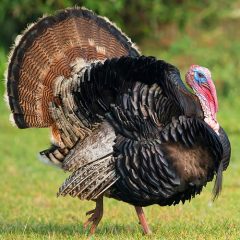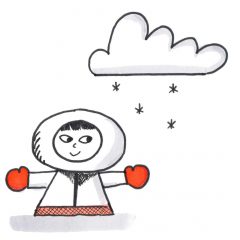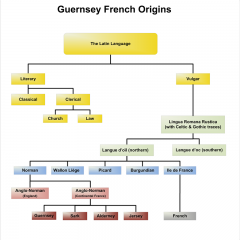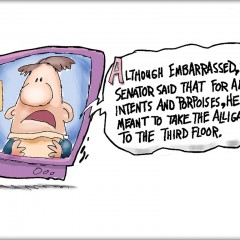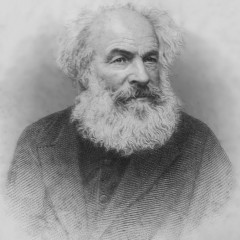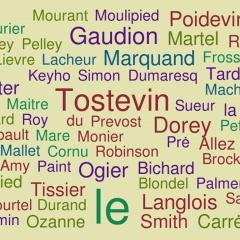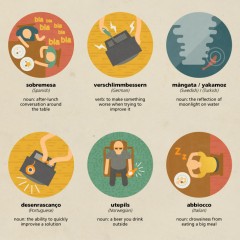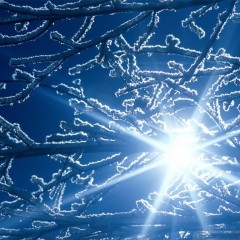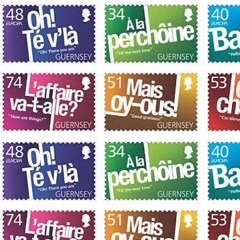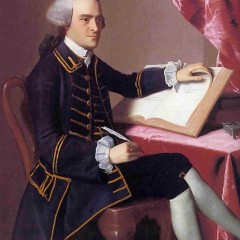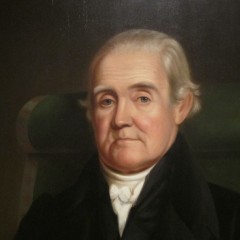Crossing the Rubicon – Caesar and the Birth of an English Idiom
On the 10th January 49 BC Julius Caesar led one of his legions across a small stream called the Rubicon, thus defying the Roman Senate and breaking the Lex Cornelia Majestatis that forbade a general from bringing an army out of the province to which he was assigned. Turning to his lieutenants just before he crossed, Caesar remarked bitterly, ‘Jacta alea est’ (The die is cast.)
The Curious Case of the 2 Turkeys
In this article we look at the mistake that gave Turkey (the Bird) the same name as Turkey (the Nation).
Do Eskimos Really have 80 Words for Snow ?
This is one of those urban myths that refuse to die … “Do Eskimos Really have 80 Words for Snow ?” So in this article we hope to answer it once and for all.
The Origins of Guernsey French and Other Channel Island Languages
Guernésiais, Auregnais, Jèrriais and Sercquiais – the local names for the French spoken in the respective islands – are direct descendants from the Norman French spoken at the time of the Conqueror. In this article we look at their ‘family tree’.
Origins of Some English Eponyms : Uncle Sam, Masochism, Martinet & Jezebel
Eponyms are one of the most fascinating examples of how the English language gains new words. In this article we take a colourful look at the phenomenon some eponyms like : Uncle Sam, Masochism, Martinet & Jezebel.
Origins of Some English Eponyms : Juggernaut, Lynching, Malapropism, Maverick & Tantalise
Eponyms are one of the most fascinating examples of how the English language gains new words. In this article we take a colourful look at the phenomenon some eponyms like : Juggernaut, Lynching, Malapropism, Maverick & Tantalise.
Words that were re-invented by the Internet
Innovations and new technology always brings with it new terminologies and new vocabularies but they can also reinvent definitions for existing words. In this article we look at six words the internet reinvented.
George Métivier – Guernsey’s national poet
Have you ever heard of Guernseyman George Métivier? Well if you haven’t then you might like to know that he’s been described as “Guernsey’s Robert Burns” by no less than Victor Hugo himself, and even considered the island’s national poet!
Word Challenge : Spondulicks , Collywobbles Intenerete and more
English is one of the richest languages in the world. At the last count there were estimated to be over 1 million words in the English lexicon. In this article we’ve gathered together just a few of the more unusual ones to see if you know (or can guess) what they mean.
The Meaning of Some Guernsey Surnames
There’s a rich variety of traditional Guernsey surnames. Surnames that have been in the island for generations and with which we are all very familiar but may never have given any thought as to what they might actually mean. In this article we look st some of them.
Bet you can’t say that in English – Some Untranslatable Words From Around The World
Thanks to the British Empire and laterly the rise of the American hegemony English is pretty much THE World language. By some estimates the English language has more than a million words and it’s generally agreed that no other language has nearly as many. So you would think that English must have a word for everything, right? No – Not even close. In this article we look at some words in other languages that just seem to defy...
The Vocabulary of Winter – 8 Unusual Wintry Words
Having a wide vocabulary is always a good thing. In this article we’ve pulled together some of the more unusual words that the English language has to offer us that relate to wintertime.
Brush up on your Patois – Guernsey French Phrases
Brush up on your Patois with Guernsey French Phrases … or learn to sing Sarnia Cherie in Guernsey’s native tongue.
Origins of Some English Eponyms : Chauvinist , Draconoian, Hooligan, John Hancock & Mentor
Eponyms are one of the most fascinating examples of how the English language gains new words. In this article we take a colourful look at the phenomenon some eponyms like : Chauvinist , Draconoian, Hooligan, John Hancock & Mentor.
When did the US start dropping the U from words such as colour?
Did the American’s hi-jack the English language and have applied what seems, on the face of it, some rather arbitary descions to spell various words differently. Why remove the U from words like colour? In this article we look at the rather querky reasons for this.

